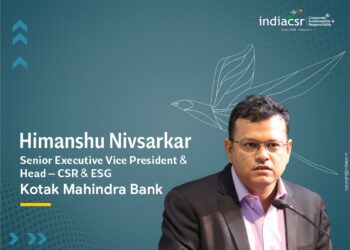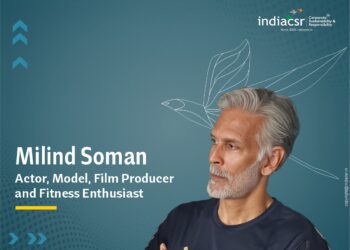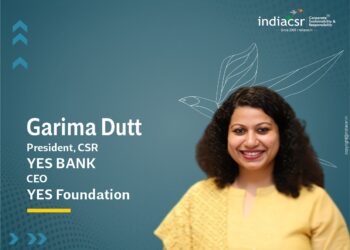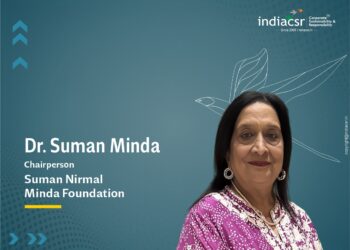Ever since the outbreak of the global pandemic, businesses and the livelihood of people have been disrupted. While many organizations extended their support to the underprivileged section of our community, Applied Materials along with United Way of Bengaluru took an initiative to conduct a vaccination drive for the rural community of Kolar.
Applied Materials has also been involved in bettering the future for the underprivileged rural communities of India. The Rural Rising Community Intervention program for Kolar focuses on the holistic interventions of rural development. Curated for the empowerment of the communities towards achieving sustainable development in rural India, the program aims at promoting quality education, livelihood support for women, and access to clean drinking water ensuring good health to lake restorations. Applied Materials has been at the forefront for creating an economic as well as a social impact on the livelihood of the people, women empowerment, youth education, and environmental sustainability. The intervention program has indeed paved a new path of prosperity for the communities.
In an interview with India CSR for CSR Leadership Series, Srinivas Satya, MD & Country President, Applied Materials India talks about the company’s CSR culture, ongoing projects, Covid-19 relief program, and commitment to society.
Can you please elaborate more on the recent vaccination drive at Kolar with United Way Bangalore?
We align our CSR initiatives with programs that create positive economic and social impact through various initiatives on livelihood, women empowerment, youth education, environment, and sustainability. We have been working closely with United Way Bengaluru since 2016 and are a part of their efforts to change lives through Rural Rising initiatives, including the Integrated Rural Development at Bangarpet, Kolar.
Vaccination is the need of the hour to help curb the spread of COVID-19. A large unvaccinated rural population can be at risk of infection, both to themselves and to the larger community.
To aid the rural community, United Way Bengaluru with our help held vaccination drives in the Kalikupp, Kammasandra, and Ketaganahalli villages of the Kolar district. Through these drives, hundreds of villagers received vaccinations. In the past, Applied has supported intervention programs for the people of Kolar and the United Way Bengaluru’s vaccination drive comes at an opportune time to extend our support to the rural community.
How many people are being vaccinated through this drive? Do you have any more plans to conduct such vaccination camps in the future?
United Way Bengaluru is working closely with the District Administration so that more than 1600 people will receive their first dose of vaccination over the next few days. In the first phase, hundreds of people were vaccinated over two days, which is immensely satisfying. In addition to administering vaccines, the drives aim to support the AHAA objective: A – Accelerate Pace; H – Combat Hesitancy; A – Build Awareness; A – Support Access.
What is the agenda of The Rural Rising Community Intervention program for Kolar?
In India, there is a disparity in access to necessities between urban and rural areas. Through our support of the Rural Rising initiative, United Way Bengaluru is addressing these gaps with the primary focus on improving and sustaining the standard of living of community members in rural areas of the country.
As the name suggests, the objective extends beyond addressing immediate needs to ensure the community participates in the interventions, owns them, sustains them, and raises their standards. With this agenda, we hope the program can mitigate problems and enhance the livelihood of the rural population.
How has the initiative created a positive impact on the livelihood of people at Kolar?
The United Way Bengaluru’s Rural Rising initiative has had a far and deep reach with community members as is evident from the fact that all the interventions are owned, maintained, and, more importantly, sustained by the community themselves. About 400 students have benefitted from higher education scholarships provided as part of the initiative. Volunteers from Applied Materials India are acting as mentors to the students receiving scholarships to improve their skills and make them ready for the rigorous and competitive job market.
STEM labs and other languages, arithmetic, and life skills improvement activities have been implemented in 50 government schools to ensure quality education to more than 4000 students. About 710 women participated and benefitted in free skill development programs and engaged in income generation activities (sheep rearing, tailoring, bag making, tamarind processing, petty shops, etc.) that have created a thriving cooperative movement.
This not only helps in generating income but also boosts women’s self-confidence. We supported the initiative’s efforts to rejuvenate six lakes to ensure water availability during dry months. About 600 rooftop rainwater harvesting units have been installed leading to the conservation of 5000-kilo liters of water and helping around 3000 villagers through this intervention. Four state-of-the-art water ATMs have been installed to provide clean drinking water to 12000 community members in the project area.
Overall, about 18,000 people’s lives have been positively impacted by these interventions and the cascading effects are there to see. This MODEL VILLAGE is an example of the impact that effective corporate, NGO, government, and community collaboration can create.
How have you been able to help the student community through this program?
Providing education scholarships to meritorious and economically challenged students to help them secure admission to college is key to the project given that many students drop out of school because of their economic situation. Such students are supported with scholarships that cover their academic fees along with other expenses such as costs of books and stationery, bus passes, etc. Alongside Applied Materials India’s funding support, our employees volunteer to provide students mentorship through monthly sessions and workshops on leadership, communications, personal development, and other life skills.

How can sustainability initiatives such as the Rural Rising Intervention program contribute to the development of rural areas?
Intervention programs like rejuvenation of lakes, enhancing the education of students, installing clean drinking water ATMs, training and installing tailoring units, and providing the community with better facilities and livelihood options contribute to the overall development of the rural area.
Corporate Social Responsibility at Applied Materials is based on our core values of Responsibility and Integrity and our commitment to making a positive social contribution in areas where our employees work and live. Through charitable grant making, we focus on four key areas – education, civic engagement, arts and culture, and the environment
What is the importance of the program in terms of catalyzing social change?
Small actions today can have a big impact tomorrow. Providing quality education to children can bring about tremendous social changes for years to come. Additionally, women’s empowerment can help enhance their livelihood and attain better standards of living for rural families.
Did you face any barriers during the implementation of the program?
Kolar is a hotspot for lots of NGO activities. We have learned from others that the key to the successful implementation of community programs is to gain the trust of the people and ensure their commitment to sustaining the project. United Way Bengaluru invested time and resources to address trust barriers with local villagers and helped augment policy to support program implementation.
How has the installation of clean drinking water and lake restorations contributed to the overall health of the people at Kolar?
Every year, two lakh people die due to lack of access to clean water in our country. Most of the wells and borewells in Kolar were insufficient to meet the drinking water and agriculture needs during the peak summer season. As part of our support for the United Way Bengaluru’s Rural Rising initiative, six lakes were taken for rejuvenation to ensure the storage of water. Additionally, efforts were made for groundwater recharging so that all the bore wells in the area could yield water for the entire community. The initiative set up 600 rooftop rainwater harvesting units to conserve water. About 120 families have started storing 4000 liters of rainwater in their homes. The initiative also installed four water ATMs that bring great relief to the community by providing access to clean and safe drinking water.
How has the intervention program paved a new path of prosperity for the people of Kolar, especially the women?
The intervention program saw a significant impact on women’s empowerment. Around 710 women participated and benefitted in free skill development programs and engaged in income generation activities like sheep rearing, tailoring, bag making, tamarind processing, petty shops, and likewise. This led to a thriving cooperative movement at the rural level.
(India CSR)























